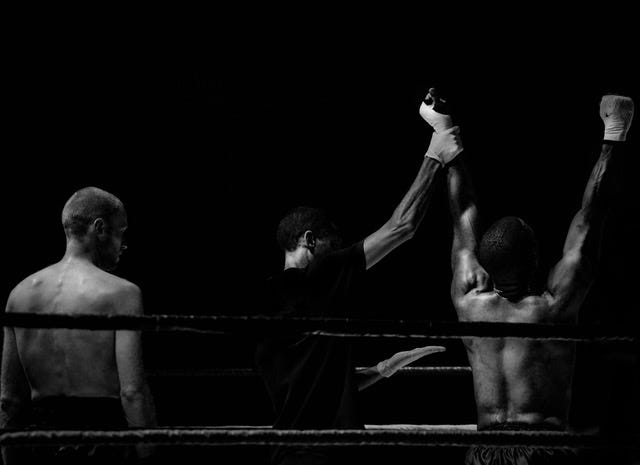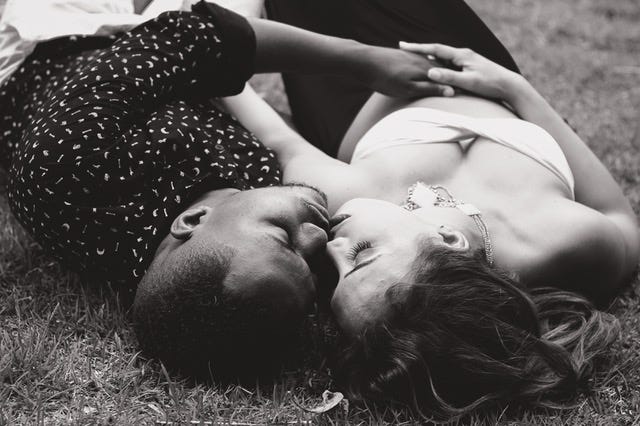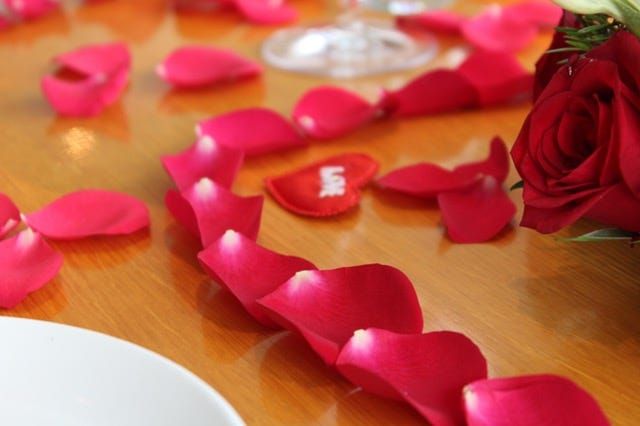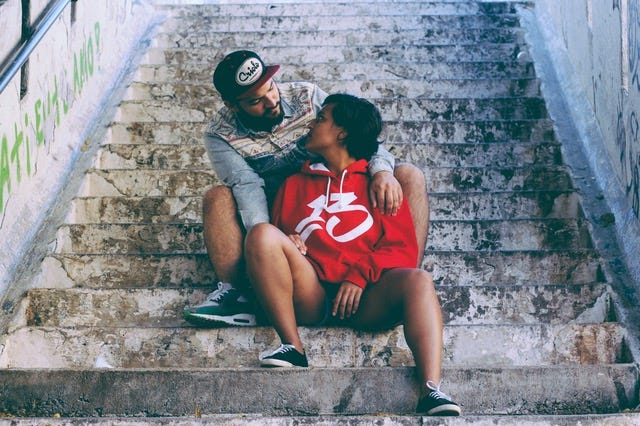The hierarchy polyamorous people don’t talk enough about
Hierarchical polyamory is seen as an inherently negative thing within many polyamorous subcultures, but very myopically. There’s a focus on having a primary/secondary structure as always problematic but I actually find that there’s a hierarchy that’s not really spoken about — and that’s the the role and value sex has in relationships.
The role of hierarchies in polyamory

As a caveat, I will say that I don’t feel as though hierarchies are always an issue in relationships (see ‘Thirteen things I wish I’d learned before choosing non-monogamy’ for more explanation) and this has a lot to do with how I structure my life around my disabilities. It’s really important for me both with my mental health and being on the autistic spectrum to have clearly defined roles for people in my life and what my expectations are of them.
Having also had a bad experience as a more or less ‘secondary’ person, I have felt like the bond I had with someone was easily discarded and I do feel like the best way for this to be avoided is clear communication about what people expect. Not that it’s going to negate sad feelings, but I personally find that the less things are laid out, the more likely I am to be dangerously optimistic because romance and new relationship energy always has the impact of making me want to hold on when I shouldn’t.
Revaluing what relationships mean

The hierarchies I’m referencing are not about primary/secondary relationships — they’re about the value sex brings to relationships and how we value sex-based relationships well over other forms of relationships.
My personal experience with non-monogamy is that it’s allowed me to really radically rethink what relationships mean and how I value them. Within a Eurocentric white heterocentrist culture, we’re taught to value romantic relationships above friendships. There’s a life plan that involves being born, growing up, finding a partner, settling down with that partner, having children, those children growing old, and then living with your partner until you die and that being a marker of ‘success’.
I won’t pretend that there aren’t cultural grey areas where there’s a question of whether you’re meant to value a significant other over your family or a child. I can certainly say as someone who’s been disowned or doesn’t speak to family, the idea that I don’t is an awkward thing for many people to cope with. However, I do think that overwhelmingly we’re taught that romantic relationships that inevitably involve sex are the relationships that our lives are defined by and are more important than friendships and other types of relationships.
Despite the fact that a ‘breakup’ with a friend can be devastating and heartbreaking, we don’t have narratives about it. Endless songs and films are written about breaking up with a significant other, about being single, about not having someone to come home to — and it’s a sharp contrast to the amount of material written about losing a close friend. And I can say personally there’s not very much written about not having family members because the assumption is that you have them.
So within polyamory, I can not only have multiple romantic relationships, but it’s taught me to reevaluate what other relationships mean and what makes a relationship in and of itself. And as someone who’s asexual, this has been really great because it means that I can have a close, intimate relationship with someone that isn’t sex-based or sex-focused.
Polyamory and sex

For as much as I think polyamorous people want to dispel the myth that polyamory is just about getting to have sex with loads of people all of the time or that it’s swinging in some way, I do honestly feel like my experiences with polyamorous people and within polyamorous culture is that there is an unwritten hierarchy which inherently gives value to those relationships that are or can be sexual over others.
From what I gather from other polyamorous people across the globe, sometimes the community surrounding you is somewhat of a lottery. Some communities are more heterocentric and transphobic than others, so it can really vary depending on where you are. All I can say is that in my experience, primarily it feels like, to put it bluntly, if someone can’t bone me at their convenience, then it’s not worth investing any energy into me.
Or the push to be so ‘sex positive’ ends up being what I call ‘sex compulsory’ (see ‘The pressure to be into it’) or at the very least you can’t be someone who wants to have an environment that’s maybe just a little sex free lest you be delegated as a prude. There are so many parties and local events which either are just play/sex parties or are basically hookup events that it just seems like if you’re polyamorous and you don’t necessarily want to leap in the bed with someone or even just leap into being physically intimate with someone, you’re not with it.
Very few people question this hierarchy in a way that actually subverts it. There’s a picture of some text I often see polyamorous people sharing on social networks that says something like, “kiss your friends more, hold hands with them, destroy the belief that intimacy must be reserved for monogamous relationships” and there is this assumption that doing romantic things with your friends breaks boundaries inherently. This doesn’t question or put into challenge the hierarchy of romantic relationships vs. friendships — it just asserts that one need do typically romantic things with your friends in order to break those boundaries, but it’s never the reverse.
Having less sex is never seen as challenging the status quo of prudishness, so then within polyamorous communities it feels like if what you want is less sex or if you don’t want sex at all, your choice of partners who understand that is very abysmal. Or at the very least, you make up such a minority within the community that, even if you do find partners who form a relationship with you that isn’t sex-centric, it’s unlikely that that relationship will be held to the same standard as one that does include sex.
What is a ‘relationship’ anyway?

Many people within the polyamorous community question the hierarchy of a ‘primary’ partner and even assume that by saying you have a primary partner that it legitimately means you love one partner more than others. Specifically people who believe in relationship anarchy, according to what I understand anyway, want to break down the barriers between relationships and feel that they value all relationships the same way.
But I find this step, like the aforementioned graphic, only works in one way. It’s about doing romantic or sexual things with people regardless of what label you give them, applying these activities to any and all of the people you want to, which is a fine approach. But my question is that why does it seem to go in only one way?
I don’t feel like, even within an ‘anarchist’ structure, relationships with a not sexual or not romantic in nature are valued in the same way sexual or romantic relationships are valued. Not wanting to have sex, not wanting even necessarily to be in a sexual environment can often lead you to having absolutely nothing to attend or go to.
Speaking for myself and not everyone on the asexual spectrum, I quite often find like events which involve a sexual aspect or are known for being places for people to meet and ‘hook-up’ feel pressured in a way that other events don’t. I quite often don’t feel like, unless I’m dating another asexual, it’s even possible to negotiate a relationship that doesn’t involve sex.
Instead of redefining a relationship in terms of just how much it means to us, relationships are redefined to mean that any and all can include sex or romantic actions. And while I’m not saying that’s inherently bad either, the fact that it doesn’t go the opposite way is worth pointing out. I’ve yet to meet an allosexual person within the polyamorous community (or outside of it, to be honest) who radically didn’t make the assumption that sex would happen between us.
What does this mean?
I know there are asexual polyamorous people out there. I’ve met quite a few of them. And I do think and know of several people within polyamorous communities that date asexual people and do challenge the inherent assumption that all relationships are sexual or romantic based quite a lot.
But what I want people to think about is reframing how they decide to challenge the status quo. I have a lot of friends who I care about deeply who I don’t want to make out with or cuddle. It doesn’t mean that they are inherently worth less than people I would make out or cuddle with. The solution to breaking down barriers between relationships isn’t only necessarily doing romantic and sexual things with friends. There’s more ways than one to think about redefining things.
I had a very close friend who I never made out with and didn’t really cuddle, but when our friendship fell apart, my sadness was on par to that of a romantic relationship. What intimacy means to us is individual. If you want to make out with and cuddle your friends, great.
But how about let’s challenge the assumption that intimacy is always physical.
